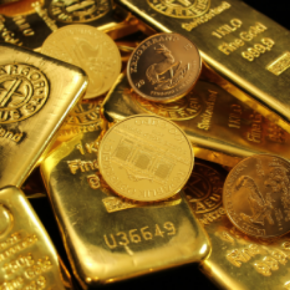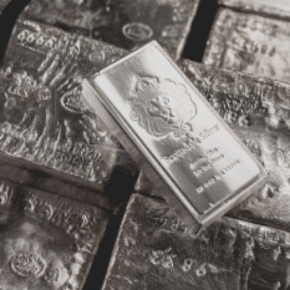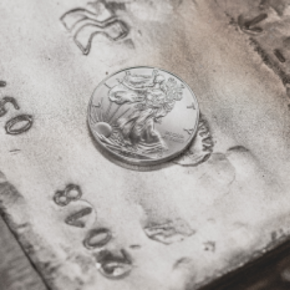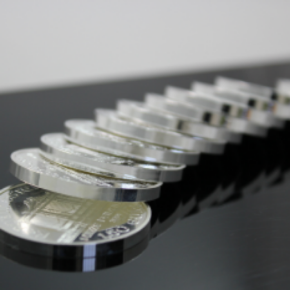F.A.Q.
Frequently Asked Questions
Q: What's the first question I should ask when buying precious metals?
A: The first question you should always ask is “do you buy back?” If a dealer won't buy back, it is typically because they are selling product at too high of a margin and don't want clients to discover that they are being taken advantage of.
Q: Is Asset Strategies International a legitimate company?
A: Asset Strategies International has been in business since 1982, over 40 years. ASI has an impeccable worldwide reputation for fair and honest pricing and has an A+ BBB rating.
Q: What forms of payment does ASI accept?
A: Check, cash, wire transfer, ACH, or credit card. For online purchases, we accept only credit cards.
Q: Does ASI have a minimum order?
A: For bullion purchases, minimum order is 1 oz. gold, platinum, or palladium, or 100 oz. silver.
Q: Does ASI charge sales tax on coins?
A: It depends. Sales tax terms vary from state to state because each state government has the authority to establish its own sales tax rules and regulations. Not all states charge sales tax. ASI representatives will calculate sales tax based on where the precious metals will be shipped and communicate this as part of the checkout process.
Q: Does ASI have metals for purchase onsite?
A: Our offices in Rockville, MD are not open to the general public (by appointment only), nor are any precious metals held onsite for purchase. All bullion products bought and sold through ASI are sourced from reputable wholesalers and shipped directly from those wholesalers to clients or to storage depositories to be held on behalf of clients. ASI does not store metals onsite.
Q: Can I specify what coins I want in my bag of junk silver?
A: The most common junk silver bags contain either dimes or quarters. Half dollar (50 cent piece) bags are also available, though they come with a higher premium because of their lack of circulation.
Q: Why doesn’t a $100 Face Value bag of junk silver cost $100?
A: The term “Face Value” (FV) refers to the denomination on the coins itself (dime = 10¢, quarter = 25¢, half dollar = 50¢). This means that $100 FV is either 1,000 dimes, 400 quarters or 200 half dollars. A $100 FV bag weighs about 5.5 lb. and contains an industry accepted standard of 71.5 oz of silver. Therefore, the $100 FV term denotes the number of coins in the bag, but the value of the bag is determined by the 71.5 oz of silver and the current silver price.
Q: Is a 24k gold coin better than a 22k gold coin?
A: All of the 1 oz. gold coins ASI deals with contain 1 oz. of gold. A 24k gold coin (like the American Buffalo or Canadian Maple) is 99.99% pure, while a 22k gold coin (like the American Eagle or South African Krugerrand) is 91.67% pure. The remaining amount is copper (5.33%) and silver (3%). This mix gives the 22k coin more durability, whereas a 24k coin may be easier to melt down if you ever had the need.
Q: Can precious metals be stored in an IRA?
A: Yes. The Internal Revenue Code allows IRAs to contain bullion (coins and bars) so long as they meet the LBMA minimum standards of fineness. Precious metals are perfect for an IRA because they are for long term investing and so is your retirement plan.
But, you must have a self-directed account that follows carefully controlled IRS rules and restrictions. Specifically, your precious metals cannot be held by you directly; they must be held through an IRA administrator in an approved depository.
Q: Can any precious metal be put into an IRA?
A: No. The Internal Revenue Code allows IRAs to contain certain gold, silver, platinum, and palladium coins and bars that meet the LBMA minimum standards of fineness. In general, precious metal bullion and coins that are 99.9% pure or better are eligible for IRA investment, but we can help guide you when it comes time to make your purchase.
Q: If I have precious metals in my IRA can they be stored anywhere?
A: That all depends on the IRA Trustee. Most Trustees already have storage relationships with a secure facility and your precious metals will be stored in that facility. However, there are some IRA Trustees that give you a choice of where the precious metals can be stored or allow you to choose the storage location. Feel free to contact a representative on storage options in an IRA, but know that the options will ultimately come down to what the IRA trustee allows.
Q: What is meant by allocated and unallocated storage?
A: With allocated storage, the client's precious metal products are stored separately and specifically assigned to the client. Unallocated storage refers to a specific quantity of precious metals on an unsegmented (unsegregated) basis, which are owned by the client, but is part of a larger pool of precious metals stored at the Perth Mint. This quantity of precious metals is recorded on the Perth Mint Certificate. Perth Mint has an obligation to deliver the recorded amount of precious metal upon request of the client with two weeks prior notice.
Q: Do you deal with precious metals storage facilities in the U.S.?
A: Yes. ASI works with several storage depositories in the U.S., and we also have metal stored in some of these facilities, meaning your order could be transferred at the facility to an account you can open in a matter of days.
Q: How can I store my precious metals outside the U.S.?
A: ASI has relationships with storage facilities around the world to help you meet your needs. Storage locations include: U.S., Canada, U.K., Grand Cayman, Switzerland, Liechtenstein, Singapore, Hong Kong, New Zealand, and Australia.
Q: Why are some numismatic coins “uncirculated”?
A: Proof coins were made for collectors and never intended for circulation as currency. Some coins intended for circulation were set aside by the general public or collectors, never being circulated, even though that was the intention by the mint. Additionally, larger denomination coins (like $20-gold pieces) were mostly for banks to use in their vaults and thus rarely made it into circulation.
Q: Is there a standard for how numismatic coins are priced?
A: Numismatic coin pricing is determined by the rarity, date, mint mark, condition of the coins, and market demand. The standard today is based on grading by independent grading services Professional Coin Grading Service (PCGS) and Numismatic Guaranty Company (NGC). These industry-accepted third party grading services determine the authenticity of the coin and the grading of the coin.
Q: What is the difference between a numismatic coin and an old coin?
A: Numismatic coins are rare or valuable coins that have an external value above and beyond the base value of the precious metal based on the rarity, date, mint mark, condition of the coins, and market demand. A generic old coin may not necessarily contain additional value.
Q: Does the precious metal certificate mean there’s actually metal at The Perth Mint?
A: Yes. It has always been and remains the policy of The Perth Mint to cover all metal sales to clients with immediate and like purchases from counterparties. At no time has The Perth Mint Certificate Program or Depository Online Program’s metal liabilities to depository clients exceeded its metal assets.
Q: What if I lose my Perth Mint Certificate or it gets destroyed?
A: Certificates can be replaced by filing a Lost Certificate Declaration Form or you can still transact with a Letter of Intent. Please contact ASI at 800-831-0007 (U.S. and Canada) or 301-881-8600 for assistance.
Q: Who audits The Perth Mint?
A: The Perth Mint’s integrated operations in the precious metals industry are overseen by Gold Corporation on behalf of the West Australian Government, under a guarantee enshrined in the Gold Corporation Act 1987. The audit is performed by the top auditing firms in the world.
Q: Can I surrender a portion of the metals in my Perth Mint Certificate?
A: Yes. Owners can surrender a minimum of a $5,000 portion of the Certificate as long as they continue to meet the established minimums for the remaining portion of the new certificate. With payment of an additional Certificate fee, a new Certificate will be issued for the remainder of your precious metals in storage.
Q: Are Perth Mint Certificates hard to sell?
A: The Perth Mint Certificate is easy to liquidate. The mint can buy back the metal on your certificates based on the current market price of the metals, minus the commission or the owner can take physical delivery of the metals represented on the Certificate after paying fabrication and delivery costs.
Q: What fees are associated with the purchase of a Perth Mint Certificate?
A: There is a 2.25% purchase commission of the precious metals and a $50.00 USD certificate fee plus shipping. For allocated storage only, there is a storage fee of 1% for allocated gold, 0.95% for pooled silver, and 1.9% for silver per annum billed twice a year. The only other fee is the ASI’s commission.
Q: What precious metals are available for purchase with a Perth Mint Certificate?
A: The Perth Mint Certificate Program offers investors the option of holding all the major precious metals: Gold, Silver and Platinum. Platinum is not available in allocated form. Precious metals storage in coins or bars MUST be on an allocated basis.
Q: How do I know there will be a market to sell my coins when I’m ready to sell?
A: Just as ASI can assist you in acquiring the coins for your portfolio, we can assist with the liquidation of your coins for you as well. We can help you liquidate an asset even if you did not purchase through ASI.




